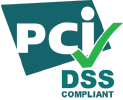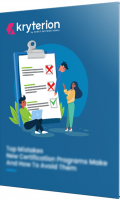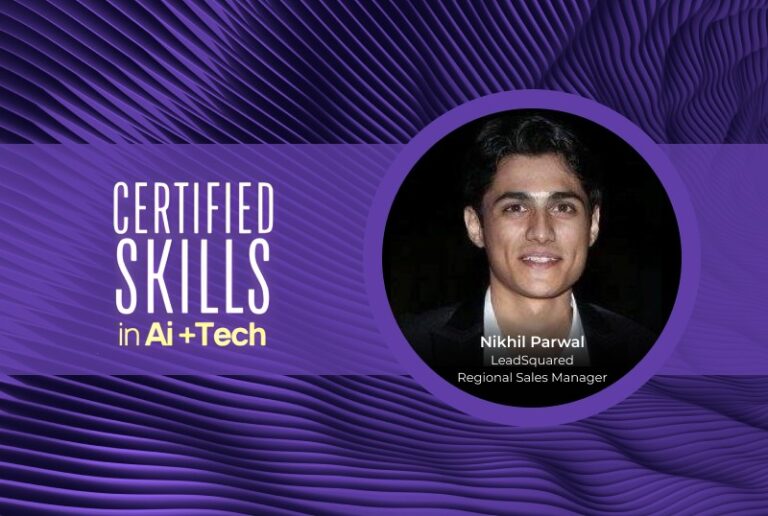In today’s fast-paced tech world, staying updated with the latest tools is essential. In the latest episode of our Certified Skills in AI and Tech podcast, Nikhil Parwal, Regional Sales Manager at LeadSquared, delves into how their CRM and marketing automation platform is revolutionizing customer relationship management. Explore how LeadSquared enhances efficiency, scalability, and reduces manual dependencies for organizations of all sizes.
We’d love to hear a little bit about LeadSquared and what you’re doing to solve people’s problems out there.
So let me start by just giving a line as to what Lead Squared is. The name can be confusing if you’re a lead generator, but we are a CRM and marketing automation platform. We aim to help anybody and everybody, organizations small and large, allowing them to have a single solution platform that can manage multiple operations across different departments. The idea is to bring in more efficiency to help them stay up to date with everything that’s happening with their customers, and their clients, whether it be communication, or tracking their journey. We aim to provide efficiency, more scalability, and focus on reducing manual dependencies on platforms or manual dependencies of any kind, by automating as much of it as possible. One of the biggest challenges with software, is that the end user doesn’t have the necessary skills to utilize that software, they don’t have the training or the understanding. So, you have this great software, but the user doesn’t maximize the benefits that are available within the software.
What makes us stand out from a lot of other CRM platforms in market, is that when we start our implementation of the platform, we make sure that we understand every user’s role and how they’re going to use the platform. We make sure that the platform is configured, and ready for them to use. We offer separate training sessions for every user type. These training sessions are more comprehensive than just giving users a bunch of documents and videos and access to a help portal. We have an entire team that does in-person instructor-led training to guide them every step of the way, ensuring that they understand the smallest of things that we have built for them in the platform. That way when they start using this tool in their job, irrespective of you what kind of function they might have and whether it’s somebody in the field using the mobile side of the CRM or somebody in the office using the desktop version, they know exactly how to use the platform.
Do you see a difference between the people who are trained and not trained? Do you have people that don’t take training as seriously as others and people that take training more seriously? Do you notice the difference between the two?
Absolutely. This happens often with people who come with experience, saying, oh, you know, I’ve used a bunch of CRMS before, how difficult can it be? I think I’ll be fine, yeah. Then as they start using the platform, they realize, oh, this is different from what I’ve used in the past. And now I don’t know what to do. One of the key differences that I see between trained and nontrained is the person who’s not trained will take longer to get used to the platform and that in turn affects productivity. It has an effect on their effectiveness within the organization to better be able to use that platform for better outcomes. Trained people are always going to be one step ahead.
How much time do you spend training? How do you map out how much time to spend with each client?
If user adoption isn’t successful, then we as a platform have pretty much failed in doing what we do best. There are a couple of different factors that we take into consideration when we’re doing training session plans. One is the size of the teams, two is the number of different functions that we must cater to and the third is whether we can break even within the same function.
If I am training 50 sales reps, then I’m not going to do one session with all 50 because I’m not going to be able to answer everyone’s questions or be able to address everybody’s concerns. So, we break it down into smaller groups. We don’t compromise on the amount of time that needs to go or needs to be spent training people because at the end of the day, they’re the ones who are going to test it. From a business standpoint, that’s going to drive recurring renewals for us as well. If they’re happy they obviously will see better outcomes and the organization is going to be happy with the platform. So, we don’t compromise on how much time we’re going to spend on training.
One of the big shifts in education that you’re seeing right now in training and customer training is the role of AI. What are your thoughts on the role of AI in this customer training space?
It would be stupid of me not to accept the fact that AI is the next big thing, right? It’s going to start taking over a lot of processes. I mean there are other companies out there who are trying to leverage AI in the realm of training, where you can go into the platform and AI will start guiding you as to how you need to be able to use the platform. But with something like LeadSquare, I believe that yes, there is a certain part of it that can be automated. We can still leverage AI as part of the training sessions. There’s still going to be a need for manual in-person-led training. But I think the main reason is twofold, right? One, as a platform, given how custom-built we are and the very minute little details that we focus on when we are building out the platform, it’s going to be very difficult for AI to guide you through each of those little journeys, right? That’s the difference between a manual instructor who’s built this platform and knows how to train you on how you’re going to use it. If you have a question, you can get it answered immediately. While AI might have certain restrictions there.
When you look at training your customers, how do you define who’s going to be the lead, who’s going to be the administrator, who’s going to be the captain of the sales team?
So as native as a CRM platform we have these roles created out-of-the-box, right? So, you have a sales Rep, you have a manager, you have an admin, you have a super admin, and so on. But it’s not one size that fits all. Every organization has a different way of working, they have their own hierarchy that they have created within the organization. Another thing that also impacts this is the level of access an organization wants to give somebody as a user. I think it’s a matter of, it’s a matter of functionality, it’s a matter of understanding who’s going to be spending more time on the back end of the system because that’ll help identify who the admin of the platform is going to be. A sales manager is not spending a lot of time looking at analytics or reporting on how automations are running or whether this automation is effective. So that person may or may not want to be the admin.
If you had one piece of advice for all the companies out there that are thinking about customer training, what would it be?
Don’t try to rush your users into starting to use a new platform just because you need to. Give them a tool to start using as they are going about their day. Let them take their time. Let them get used to the platform because the more user-friendly and understandable it is as a tool for them to use on a day-to-day basis, the more productive they’re going to be. The more efficient they’re going to be, the better they’re going to be able to use that tool for you know, the desired outcomes that you want to get from them.
So, my request to every company out there is irrespective of whether it’s product training, whether it’s sales training, whether it is your sales development, whether it is your general managers, if there’s any kind of training you can provide, give them the time to consume it. Time to grasp everything and apply it and try it and test it and give you feedback on what is working, and what isn’t, and then you can incorporate that for the new employees that come in in the future.
Kryterion’s Approach to AI-integrated Test Development and Delivery
At Kryterion, we clearly see the opportunities and disruption that AI is bringing to our industry. Our top priority is to provide clients with the best mix of security, innovation, service, and value in our tools for test development and delivery. AI is quickly becoming an integral technology in our products and direction. The path we are on with AI encompasses the immediate benefits it provides while maintaining a sharp awareness of its evolution allowing us to ensure our products continue to meet or exceed the needs of our clients.
Please contact us to set up a meeting so we can further discuss how important AI is to our future and our clients.
Want to keep up with insights on AI in the testing industry? Listen to the Kryterion podcast







